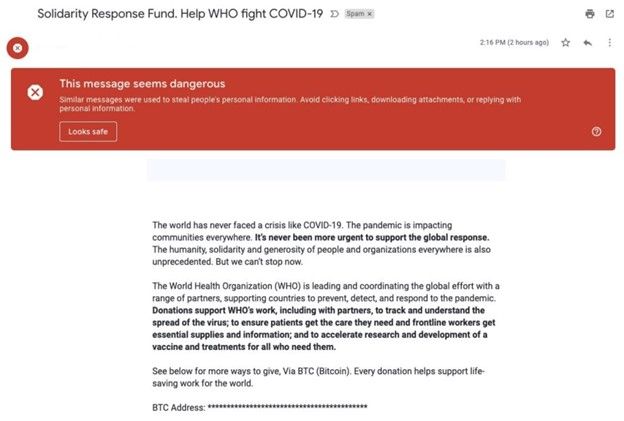Estimated reading time:3 minutes
Facebook and Google have both released new metrics related to their Covid-19 response efforts on the social and technology fronts.
Facebook shows notifications on News Feed for people who have been exposed to Covid-19 fake news
Facebook said it had removed hundreds of thousands of false posts about Covid-19, which could harm recipients. In March 2020, the social network also displayed warnings on 40 million suspicious content related to the SARS-CoV-2 virus but did not delete them.
In addition, Facebook began posting messages on News Feed of people who interacted (liked, commented, shared) with the Covid-19 fake news that the company had removed and directed them to the correct information. Users will be directed to the World Health Organization (WHO) page to clear up misunderstandings about the disease, as well as encourage them to help friends and relatives avoid fake news.
This is the latest move that Facebook has taken to deal with the "fake news pandemic" related to Covid-19. Popular rumors circulating on social media include 5G spreading the virus; drink alcohol to prevent viral infections; Cold weather and snow will kill the virus or mosquito bites will spread the virus.
Gmail blocks 18 million malicious Covid-19 emails every day

Google tampered with 18 million Covid-19-related phishing and malicious emails every day in the last week, representing nearly 20% of all phishing emails blocked on a daily basis. It doesn't even include the 240 million Covid-19 spam emails that the system automatically filters out every day.
Cybersecurity experts warn that hackers and organized cybercriminals are taking advantage of the Covid-19 crisis to attack people working and learning remotely. The latest figures from Gmail, the world's most popular email service, show it's not a warning.
According to Google, scammers often impersonate international organizations like WHO to get people to donate in Bitcoin. They also pose as administrators to trick victims into clicking on suspicious links. Some impersonated government organizations, providing information to businesses about the bailout.
Machine learning plays a key role in Google's efforts to stop malware, phishing, and other malicious emails. Scammers often tweak and change techniques to bypass mail filtering and take advantage of a crisis like Covid-19, so technology has to adapt as well.
Earlier this year, Google detailed a new "document scanner" technology that uses deep learning to improve its ability to detect threats in attachments. These technologies help Google scan 99.9% of malicious emails.


